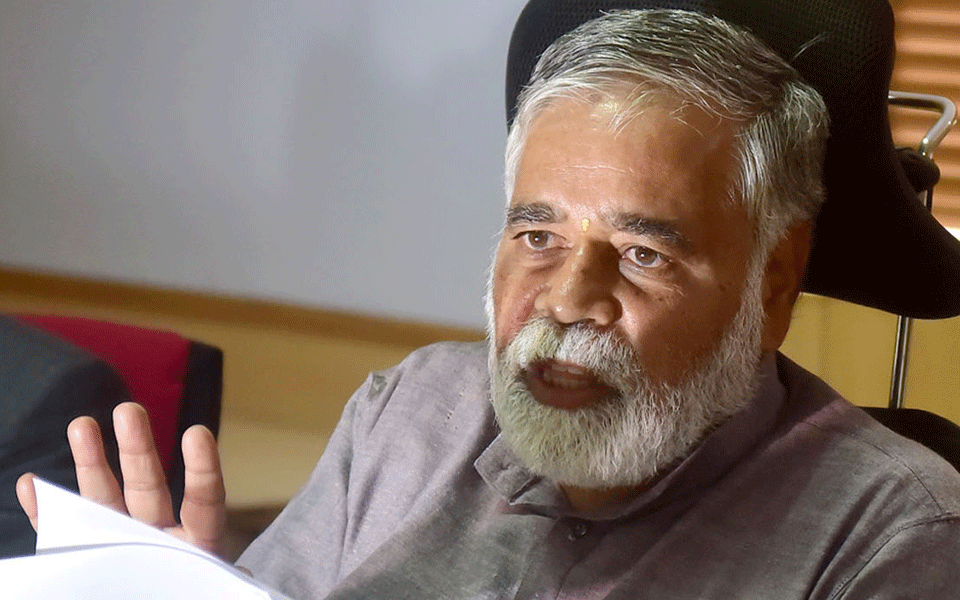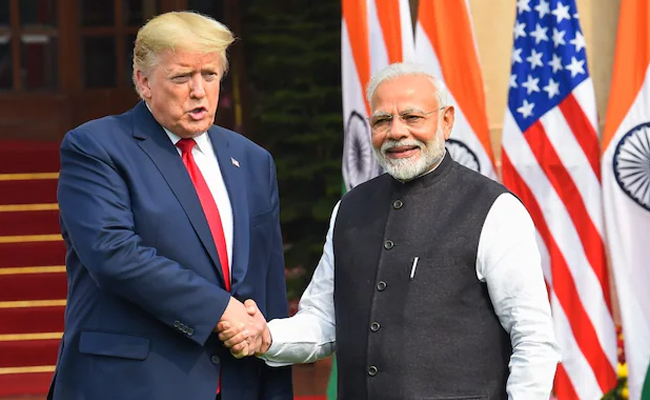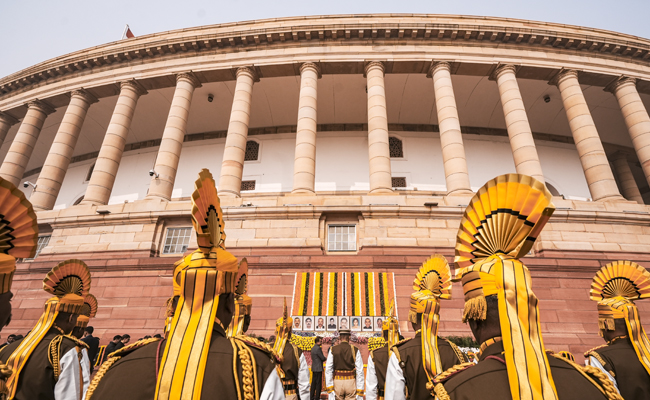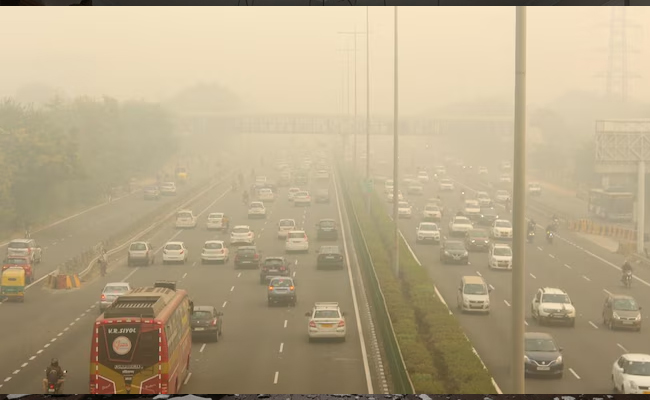Bengaluru(PTI): Ruling out holding re-exams for those who skipped them on account of the hijab row, Karnataka Minister for Primary and Secondary Education B C Nagesh on Monday said there is no such system for absentees.
He said exams are competitive in nature and there cannot be humanitarian consideration for absentees.
"Whatever the Court has said, we will abide by it. Being absent from exams will only be the prime factor and not the reason, whether it may be because of hijab row or ill-health or inability to attend or for not having studied. In the final exam- absent means absent- repeat exams cannot be held," Nagesh said in response to a question.
Speaking to reporters here, he said only those who have failed in the exam will have an opportunity to take up the supplementary exams.
"There cannot be new precedent, from the time the board exams are being held, there is no such system to hold re-exam for absentees," he added.
Following the Karnataka High Court's interim order in February restraining all the students from wearing saffron shawls, scarves, hijab and any religious flag within the classroom, several Muslim girl students had boycotted classes and had skipped the practical exams.
The Court in its final order on March 15 had dismissed petitions filed by a section of Muslim girl students, seeking permission to wear the headscarf inside the classroom.
With the High Court order now being challenged in the Supreme Court, several Muslim girls continue to boycott classes and have indicated about skipping second PUC (class 12) board exams in April, with some of them making it clear that they would not return to classrooms without their hijab.
Stating that there cannot be humanitarian consideration while holding exams or in the education system, the Minister said, exams are competitive and it should be held in an uniform way, in which rank or first class or others is to be scored.
"If we consider humanitarian grounds, tomorrow people will come with varied reasons for not attending exams and seek re-exam.. it cannot happen. There is no such system of holding re-exam for absentees," he said.
Noting that the interim order and thereafter the final order on the hijab row had come much before the exams, Nagesh said, "I can't believe the PU students who have gone to Supreme Court, would not have gone through the interim and final order. They are clever, some of them have decided to be absent, after going through it."
Let the Truth be known. If you read VB and like VB, please be a VB Supporter and Help us deliver the Truth to one and all.
New Delh (PTI) The Congress on Saturday said it is perhaps not very surprising that India is not part of a US-led strategic initiative to build a secure silicon supply chain, given the "sharp downturn" in the Trump-Modi ties, and asserted that it would have been to "our advantage if we had been part of this group".
Congress general secretary in charge of communications Jairam Ramesh took a swipe at Prime Minister Narendra Modi, saying the news of India not being part of the group comes after the PM had enthusiastically posted on social media about a telephone call with his "once-upon-a-time good friend and a recipient of many hugs in Ahmedabad, Houston, and Washington DC".
In a lengthy post on X, Ramesh said, "According to some news reports, the US has excluded India from a nine-nation initiative it has launched to reduce Chinese control on high-tech supply chains. The agreement is called Pax Silica, clearly as a counter to Pax Sinica. The nations included (for the moment at least) are the US, Japan, the Republic of Korea, Singapore, the Netherlands, the United Kingdom, Israel, the United Arab Emirates, and Australia."
"Given the sharp downturn in the Trump-Modi ties since May 10th, 2025, it is perhaps not very surprising that India has not been included. Undoubtedly, it would have been to our advantage if we had been part of this group."
"This news comes a day after the PM had enthusiastically posted on his telephone call with his once-upon-a-time good friend and a recipient of many hugs in Ahmedabad, Houston, and Washington DC," the Congress leader asserted.
The new US-led strategic initiative, rooted in deep cooperation with trusted allies, has been launched to build a secure and innovation-driven silicon supply chain.
According to the US State Department, the initiative called 'Pax Silica' aims to reduce coercive dependencies, protect the materials and capabilities foundational to artificial intelligence (AI), and ensure aligned nations can develop and deploy transformative technologies at scale.
The initiative includes Japan, South Korea, Singapore, the Netherlands, the United Kingdom, Israel, the United Arab Emirates, and Australia. With the exception of India, all other QUAD countries -- Japan, Australia and the US -- are part of the new initiative.
New Delhi will host the India-AI Impact Summit 2026 on February 19-20, focusing on the principles of 'People, Planet, and Progress'. The summit, announced by Prime Minister Narendra Modi at the France AI Action Summit, will be the first-ever global AI summit hosted in the Global South.
Prime Minister Modi and US President Trump on Thursday discussed ways to sustain momentum in the bilateral economic partnership in a phone conversation amid signs of the two sides inching closer to firming up a much-awaited trade deal.
The phone call between the two leaders came on a day Indian and American negotiators concluded two-day talks on the proposed bilateral trade agreement that is expected to provide relief to India from the Trump administration's whopping 50 per cent tariffs on Indian goods.
In a social media post, Modi had described the conversation as "warm and engaging".
"We reviewed the progress in our bilateral relations and discussed regional and international developments. India and the US will continue to work together for global peace, stability and prosperity," Modi had said without making any reference to trade ties.





